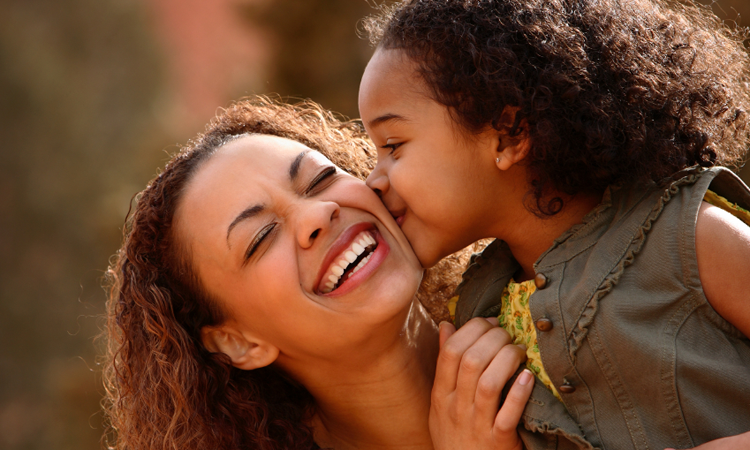Mindfulness is a term that has become more widely accepted in recent years.
What was once something mainly discussed amongst spiritual guru types, and yogis, is now gaining more mainstream attention. Mindfulness means being conscious or aware of something. It is achieved by focusing one’s awareness on the present moment, and acknowledging and accepting one’s feelings and thoughts.
Bringing mindfulness to our parenting is a concept that is very dear to my heart. As a life coach and parent, merging mindfulness and parenting has just made sense. Mindful, or conscious parenting as I often call it, goes beyond just buying organic, researching the best products, organizing the perfect birthday parties, cooking, picking up and dropping off. It’s about being present, not just for our children’s material and physical needs, but even more importantly, for their emotional needs.
Mindful parenting looks different at different ages, but is ultimately about becoming aware of the things we say and how we act, and how it affects our children’s thoughts about themselves and others. It’s about not focusing solely on our kids’ achievements, but on the process of learning and exploring. It’s about encouraging them to appropriately maintain their authenticity and handle their emotions. It means responding to parenthood from a place of awareness, not attachment. Raising mindful kids also includes allowing them to stay true to the nature we were all born into…presence.
Parenting with mindfulness and raising mindful children, requires us first to do some work on ourselves. Children feed off of our energy, and eventually become reflections of who we are. We can’t expect our children to learn to love and accept themselves exactly as they are, if we are always putting ourselves down. We can’t expect our children to appreciate what they have, rather than longing for what they don’t, if we don’t show appreciation for the things we have. We can’t expect our kids to not have temper tantrums, when we aren’t calm, and freak out on a regular basis. We can’t expect our little ones to say they are sorry if we don’t take accountability for our own mistakes, and show them it’s ok and that we can learn from these experiences.
One of the greatest gifts we receive from having children is realizing how much we can learn from them. Oftentimes we get so caught up in teaching (or preaching to) our children, we miss these amazing opportunities. Preschool aged children can teach us to live more in the present moment. Just observing our kids, and witnessing the joy that lies in whatever they are engaging in at that time, can be truly eye opening. They are able to just BE, without getting caught up in their thoughts. Of course, the present moment is not always sunshine and rainbows, but another lesson they can teach us is resilience. Young children feel their feelings, and get over things very quickly (even though their meltdowns can sometimes feel like an eternity for us). They don’t dwell on the past, or spend much time worrying about the future. That is a learned behavior that shows up as they get older because most adults spend the majority of their time consumed with worry and regret.
So, what are some things we can do to parent more consciously? First and foremost, allow your children to be who they are. It is not our job to mold them into miniature versions of ourselves. We should respect them as people, and realize that just because we want them to act, think, feel, or dress a certain way, our job is actually to encourage them, accept them, and love them exactly as is.
Allow your children to feel their feelings. Many children are told from a young age, things like, “Don’t cry,“ or “You shouldn’t feel angry/sad/jealous,” or “Don’t be scared.” Statements like these teach them that they shouldn’t feel what they feel, that their feelings are somehow wrong. The truth is though, we are all entitled to feel exactly however we feel in any given moment, regardless if others agree or not. Over scheduling can be an issue too. Always providing activities for our kids prevents them from ever getting bored. If they never get bored, they miss an opportunity to navigate through their feelings. Shutting down our kids’ feelings inhibits emotional growth. If you are out of touch with your own feelings (which many adults are), work on getting more comfortable with them. No feeling lasts forever, and the only way to get past a feeling, is to go through it.
Set aside time with no electronics. As difficult as it may be for many of us, even an hour without the distractions of emails, texts, social media and the internet, allows us to be fully present with our kids.
Finally, focus on the good in life. Instead of just telling your kids all the time how fortunate they are, and to be grateful, show gratitude yourself. Focus on the little things that make you smile. Point out things like the blossoms on the trees in springtime, how yummy it smells when you walk into a bakery, or how cozy a new blanket feels. At bedtime, discuss your favorite parts of the day.
It’s so easy to get caught up in what can often feel like chaos in life. It’s natural to just go through the motions of every day. Before we know it, our little ones will be all grown up, so there is no better time than today to tell your kids how much you love to hear them giggle, how hugging them makes you feel, and how proud you are to be their mommy or daddy. Listen without trying to fix, take a breath, be present, and love as much as possible!
Click here to see Rose’s tips for healthy and happy relationships


